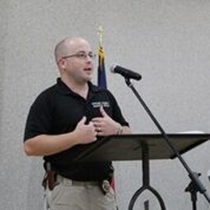WASHINGTON – Rep. John Ratcliffe’s (R-Texas) legislation to fight crime using digital evidence led to the prosecution of dozens of child exploitation cases throughout Northeast Texas since it was signed into law by President Donald Trump last year.
“I’m incredibly grateful that my new law allows law enforcement officers in Northeast Texas to better leverage digital avenues to get dangerous child sex offenders off the streets,” Ratcliffe said.
“Whether it’s a cell phone call that was made, or a geolocation that was sent – we’ve got many emerging ways to pinpoint predators in our communities. It’s critical that our state and local police know what digital evidence to look for and how to find it, so we can prosecute those who commit sickening crimes against the most vulnerable in our society.”
The Strengthening State and Local Cyber Crime Fighting Act (P.L. 115-76) equips state and local law enforcement officers to properly identify and collect evidence needed to prosecute an increasing number of cases involving digital footprints. The law enables officers from across the country to learn about the collection of cyber evidence from Secret Service agents at the National Computer Forensics Institute (NCFI) in Hoover, Ala.

Chief Investigator Corley Weatherford of Hopkins County Sheriff’s Office recently met with Ratcliffe’s district staff to discuss the impact of his law on the Northeast Texas community. He is a graduate of multiple classes at the NCFI that focused on computer forensics and mobile device examination, which have helped him solve child exploitation crimes in coordination with the North Texas Internet Crimes Against Children (ICAC) Task Force.
On top of the exceptional training, Weatherford said the NCFI provided him with top-of-the line equipment to bring back to his local law enforcement agency, which allows him to provide forensic services to Northeast Texas. This training and equipment is now used in a growing number of investigations in the region.
“Forensics were once looked at as something that is reserved for only the highest priority cases,” he said.
“Today most adults and many children have smartphones with them daily. These mobile devices find their way into many investigations other than traditional computer crimes.
“A mobile device may be extremely valuable evidence in practically any case if one considers the possibility of location data, call logs, text or chat conversations, web history, and many other artifacts that can be found on these devices.”
Due to the uptick in cases involving cyber forensics information, cell phones and other electronic devices, Weatherford said his NCFI training has played a critical role in his work on dozens of child exploitation cases that led to prosecution on the state and federal level. This included the conviction of a Cumby school teacher with 100 child victims, and a conviction in a Sulphur Springs case involving a local pastor for child pornography.
As the former U.S. attorney for the Eastern District of Texas, Ratcliffe’s prosecution and conviction of a Nacogdoches, Texas sheriff’s deputy for child sex crimes gained statewide acclamation. This work encouraged him to introduce the Strengthening Children’s Safety Act of 2017 (H.R. 1842), which passed in the U.S. House of Representatives last year to boost children’s safety by closing loopholes in the federal laws that punish sex offenders.
Ratcliffe plans to continue his fight against child exploitation in the upcoming year.
“The horrific child exploitation crimes I prosecuted during my time as U.S. attorney still haunt me. They’re what spurred me to prioritize legislative efforts in Congress that focus on protecting children, and I won’t give up on this important fight.”





